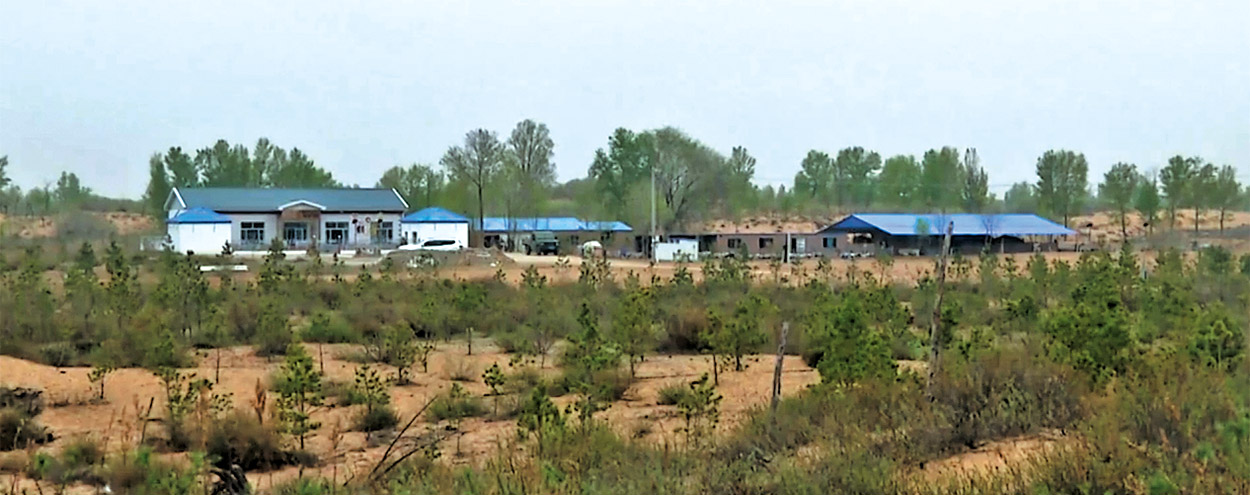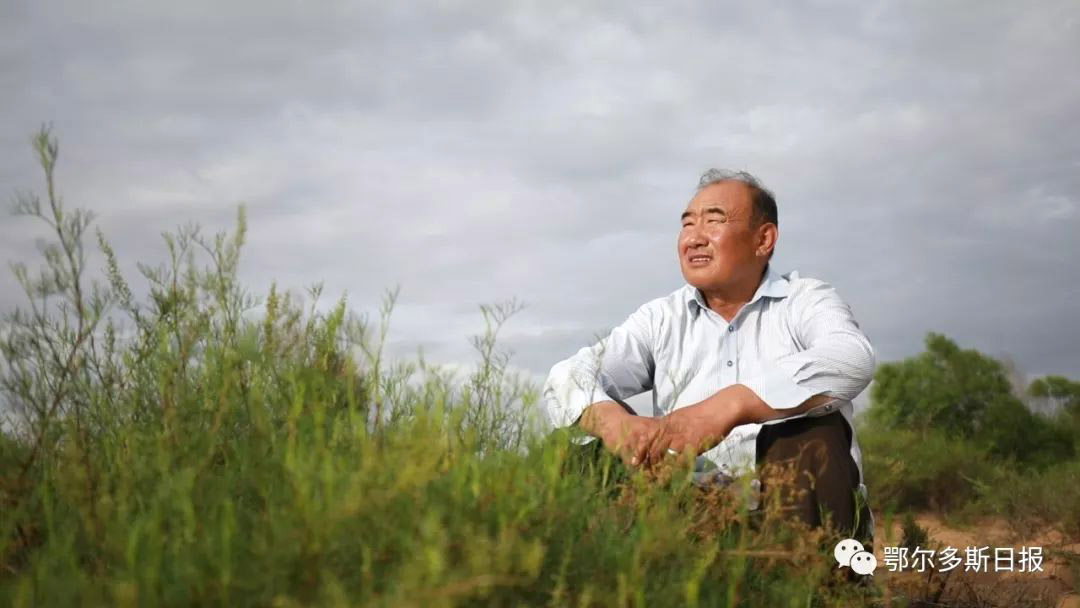Man's home has gone from having no trees, to 97% vegetation in a generation

Raised in the arid expanse of the desert in the Inner Mongolia autonomous region's Otog Front Banner, Ulziidelger's deep-rooted longing for lush greenery has woven itself into the essence of his existence. This sentiment has blossomed into his over five decades of resolute dedication to afforest his home area.
The 71-year-old's journey toward greening his hometown has not merely been a personal endeavor, but a testament to the power of collective action and unwavering determination.
Ulziidelger's family, who are from the Mongolian ethnic group, has a tradition of tree planting that dates back to the 1960s. In 1962, when his family moved away from his grandparents into a self-built humble dwelling, one of the first things his mother did was to ask for two willow saplings from a neighbor and plant them in front of the house.
READ MORE: Mosaic of magic
"During that time, my family's economic situation was unfavorable. My mother's words have remained etched in my memory, 'A house truly becomes a home when a tree is planted in front of it,'" he said.
Back then, his family owned almost 570 hectares of pasture. Most of them, however, were covered by sand. Ulziidelger started participating in tree planting organized by the Bayan-Us village committee when he was about 11, making use of his time after school.

Soon after his marriage in 1972, he enthusiastically involved his wife in this endeavor. "The harsh ecological conditions resulting from the severe desertification of my home area hardly left any room for development," he said. "And many of my parents' generation held the idea of planting trees to improve the ecological environment, so I was determined to combat desertification and engage in afforestation immediately after getting married."
They didn't have any vehicles to transport saplings, and even if they had one, the challenge of navigating the soft sandy terrain made transportation extremely difficult. What he and his wife could do was to carry the saplings over their shoulders and backs over long distances, he said.
Despite the challenges, they persevered in their tree planting endeavors. The planting locations were carefully selected based on factors such as water availability and soil conditions to ensure the survival of the saplings.
To save time, the couple rarely returned home for lunch. Instead, they frequently prepared millet in an insulated jug with hot water, allowing it to soak for two to three hours before eating it. Occasionally, they would also put some meat into the jug.
"The mixture is neither too thick, nor too thin. It worked as a good solution that could offer us hot food, instead of wasting time to go back home and cook," he said.
Ulziidelger's consistent efforts paid off. Around the new millennium, all of his sandy pasture had been transformed into lush land. But this didn't mark the end of his enthusiasm.

Subsequently, in 2004, when China implemented a national program to financially incentivize environmental conservation, Ulziidelger, who was the Party chief of his village at the time, opted to rally additional individuals to participate in afforestation, effectively leveraging the funds provided by the initiative.
Backed by the local government, Ulziidelger assembled villagers eager to combat desertification but lacking technical expertise, and arranged training sessions for them. In addition to hosting lectures by forestry experts, he also shared his experiences during these sessions.
The combined efforts have brought about a remarkable transformation in their village. With green vegetation coverage skyrocketing from nearly zero to 97 percent, the once frequent occurrence of flying sand invading people's homes and occasionally burying them has now become a rare sight.
ALSO READ: Herders live in harmony with desert of 'Five Wonders'
Through the decades, Ulziidelger's efforts had not gone unnoticed. His tireless dedication and innovative approach to combating desertification have earned him numerous accolades, including being recognized as an exemplary Party member, an eco-warrior and a beacon of environmental stewardship.
As Ulziidelger ages, it has become increasingly challenging for him to continue planting trees.
"This could very well be my final year planting trees. But the duty will be entrusted to my son and grandson in the years to come," he said.
Contact the writers at houliqiang@chinadaily.com.cn


